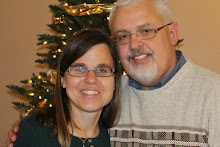There are four small creatures, wisest of the wise they are— ants—frail as they are, get plenty of food in for the winter; marmots—vulnerable as they are, manage to arrange for rock-solid homes; locusts—leaderless insects, yet they strip the field like an army regiment; lizards—easy enough to catch, but they sneak past vigilant palace guards.
Proverbs 30:24-28 MSG
You could subtitle these verses as "lessons from the animal kingdom," or "what I learned on my trip to the zoo." The words of Agur follow the example set by Solomon, who not only gained his wisdom by watching the ways of men and women, but also paid attention to what God was saying through His creation. Agur, who was likely one of the royal scribes of Judah that worked during the days of Ezra and the return of the exiles from Babylon, no doubt found the volumes of literature which Solomon had compiled. In the midst of the thousands of proverbs that Solomon wrote (many which are not included in the book of Proverbs), he may have come across the volumes of literature where Solomon described the plant life and classified the animals (see I Kings 4:33).
Both David and the apostle Paul remind us that God reveals Himself in this way:
The heavens declare the glory of God; the skies proclaim the work of his hands. Day after day they pour forth speech; night after night they reveal knowledge.
Psalm 19:1-2 NIV
For since the creation of the world God’s invisible qualities—his eternal power and divine nature—have been clearly seen, being understood from what has been made, so that people are without excuse.
Romans 1:20 NIV
As Paul went on to say, the creation is not to be worshipped (Rom. 1:25), but is to point us to the greatness of our God, who made all things. The One who gave order to all that has been created is the same One who knows us by name, cares for us, and desires that we come to Him for wisdom for our daily lives.
Saturday, July 30, 2016
Subscribe to:
Post Comments (Atom)


No comments:
Post a Comment